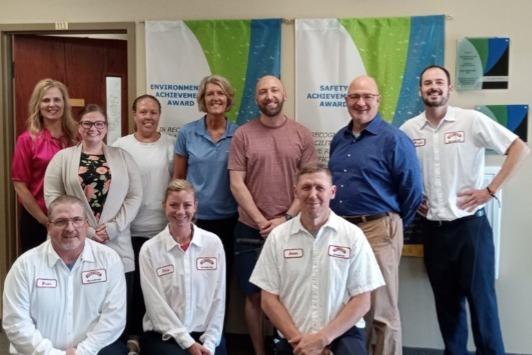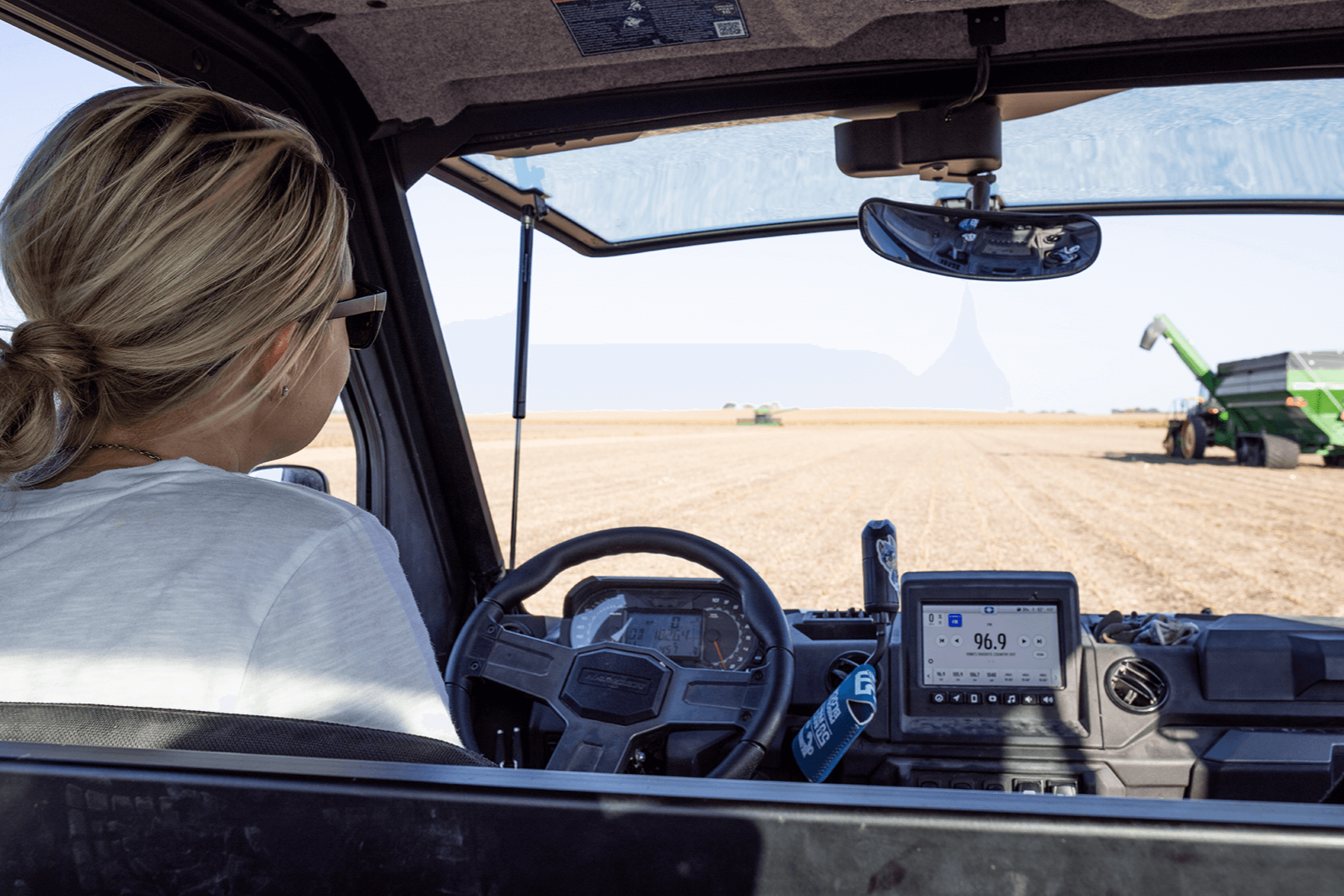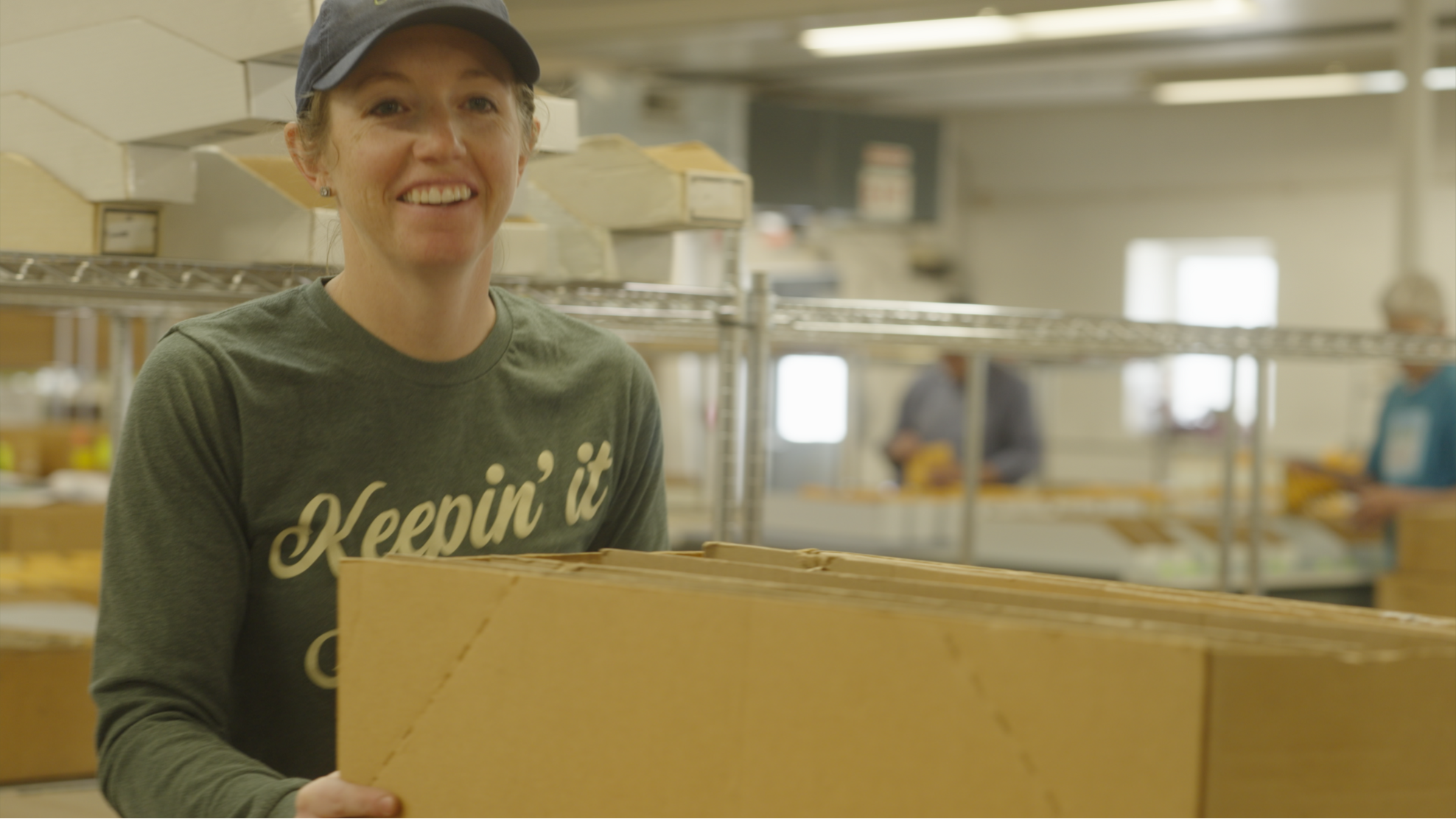
People
Meet the team behind the scenes of WinField United's Answer Plot program
WinField United’s Answer Plot program helps farmers make data-driven decisions about their crops
Every year, farmers face new and unexpected challenges throughout the planting, growing and harvesting seasons. Whether it’s commodity markets, weather events or countless others, each challenge has the potential to dramatically impact the profitability and long-term viability of America’s farm families.
Land O’Lakes and its business units have the distinct advantage of being able to draw from the expertise of teams that span nearly the entire food and agricultural value chain – along with co-op network that touches half the harvested acres in the U.S. – to find solutions to those challenges. It’s a responsibility everyone at Land O’Lakes takes very seriously.
Tony Martin, an operations specialist for WinField United, says his role on the Answer Plot team gives him a unique privilege of being on the front line of providing real-time solutions for farmers every year.
“Everything we do is really cool,” Tony says. “We have to take tons of technology every day and get it to work.”
Answer Plot, simply put, is WinField United’s localized crop research program. This year, 15 teams have been tending about 100 Answer Plot locations, testing competing products, partner products and WinField United products to help farmers make the right planting decisions for their operations.
Alex Clough is an operations specialist for Answer Plot and is in charge of the packaging room in Vincent, Iowa. She and Tony have worked together for 11 seasons, and through all the changes and innovations the program has gone under during that time, one thing still remains the same.
“The main objective is to get quality data to help farmers maximize their return on investments,” Alex says. “Our goal is to just help the farmer with quality research we do and the data we get.”
Though the growing season doesn’t start until closer to the middle of the year, Alex and Tony’s packaging team begins to ramp up production in February.
Land O’Lakes and its business units have the distinct advantage of being able to draw from the expertise of teams that span nearly the entire food and agricultural value chain – along with co-op network that touches half the harvested acres in the U.S. – to find solutions to those challenges. It’s a responsibility everyone at Land O’Lakes takes very seriously.
Tony Martin, an operations specialist for WinField United, says his role on the Answer Plot team gives him a unique privilege of being on the front line of providing real-time solutions for farmers every year.
“Everything we do is really cool,” Tony says. “We have to take tons of technology every day and get it to work.”
Answer Plot, simply put, is WinField United’s localized crop research program. This year, 15 teams have been tending about 100 Answer Plot locations, testing competing products, partner products and WinField United products to help farmers make the right planting decisions for their operations.
Alex Clough is an operations specialist for Answer Plot and is in charge of the packaging room in Vincent, Iowa. She and Tony have worked together for 11 seasons, and through all the changes and innovations the program has gone under during that time, one thing still remains the same.
“The main objective is to get quality data to help farmers maximize their return on investments,” Alex says. “Our goal is to just help the farmer with quality research we do and the data we get.”
Though the growing season doesn’t start until closer to the middle of the year, Alex and Tony’s packaging team begins to ramp up production in February.
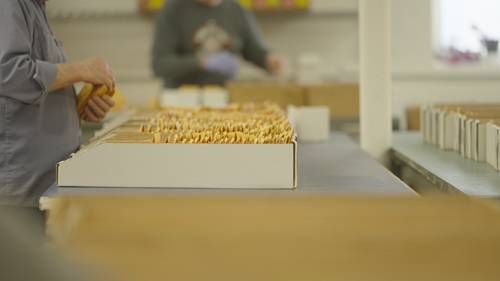
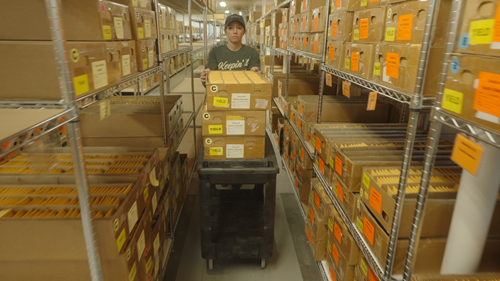
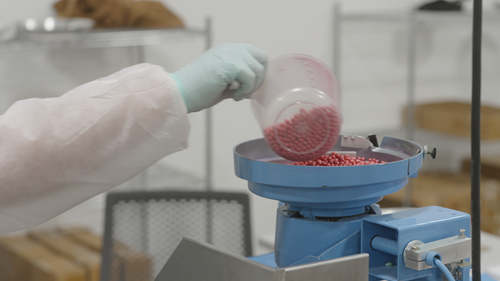
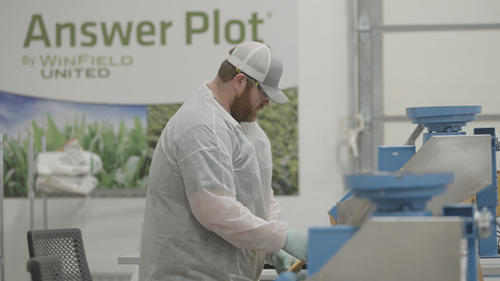
Though the growing season doesn’t start until closer to the middle of the year, Alex and Tony’s packaging team begins to ramp up production in February. Alex says the time period from February to May is “pretty much madness” as the team works to get everything ready for the field crews.
Between the two of them and a number of seasonal employees – this year there were 22 – they work with suppliers and partners to pick which crops will be tested in the upcoming year, what hybrid they want and how much of it is needed.
From there, their team individually packages around 600,000 seed packets that are sent out to 16 test crews across the country. The team mostly packages corn and soybean seeds, but they also deal in wheat, canola, alfalfa and others.
Alex says the time period from February to May is “pretty much madness” as the team works to get everything ready for the field crews, adding that the experience of the seasonal staff is essential to getting everything done on time.
“Some of the staff have been here for more than 10 years,” Alex says. “You trust them more and more every year. It alleviates so much of that pressure for us.”
Once that seed is sent out, Alex and Tony’s team continues to support the crews in the field throughout the growing season, sending more seed, fertilizer and anything else they might need.
“For the Answer Plot teams in the field, they're doing planting operations. They're laying down fertilizers, putting down pre-emergence crop protection products, they're taking soil samples,” Tony says. “While they’re planting, they're building maps so they know exactly what's going on.”
Tony says what makes Winfield United’s Answer Plot program unique among competitors is not only the sheer amount of data that’s collected every year, but how specific and digestible the program is able to make that data for consumers.
“They take yield data, every cost that was involved to get a certain crop to a certain point in its growth. They attach a value to that,” Tony says. “We collect a lot of data across the Midwest. You live in Ohio? We've got data there. Same thing in Iowa. We can help anybody just about anywhere.”
Throughout every season, the Answer Plot program will have different goals, different types of products it will be testing and ultimately different results based off those tests. What’s stayed the same for the last 11 years though, Alex says, and what will continue to stay the same into the future is the emphasis the program places on getting farmers the data and insights they need to have a successful season.
“It gives farmers real-time data. Farmers think about everything, and there is so much competition in the seed and crop protection business,” Alex says. “We put on sessions throughout the summertime with our agronomists, and you can see we have credibility. If nothing else, our data has credibility because we do it ourselves.”
From there, their team individually packages around 600,000 seed packets that are sent out to 16 test crews across the country. The team mostly packages corn and soybean seeds, but they also deal in wheat, canola, alfalfa and others.
Alex says the time period from February to May is “pretty much madness” as the team works to get everything ready for the field crews, adding that the experience of the seasonal staff is essential to getting everything done on time.
“Some of the staff have been here for more than 10 years,” Alex says. “You trust them more and more every year. It alleviates so much of that pressure for us.”
Once that seed is sent out, Alex and Tony’s team continues to support the crews in the field throughout the growing season, sending more seed, fertilizer and anything else they might need.
“For the Answer Plot teams in the field, they're doing planting operations. They're laying down fertilizers, putting down pre-emergence crop protection products, they're taking soil samples,” Tony says. “While they’re planting, they're building maps so they know exactly what's going on.”
Tony says what makes Winfield United’s Answer Plot program unique among competitors is not only the sheer amount of data that’s collected every year, but how specific and digestible the program is able to make that data for consumers.
“They take yield data, every cost that was involved to get a certain crop to a certain point in its growth. They attach a value to that,” Tony says. “We collect a lot of data across the Midwest. You live in Ohio? We've got data there. Same thing in Iowa. We can help anybody just about anywhere.”
Throughout every season, the Answer Plot program will have different goals, different types of products it will be testing and ultimately different results based off those tests. What’s stayed the same for the last 11 years though, Alex says, and what will continue to stay the same into the future is the emphasis the program places on getting farmers the data and insights they need to have a successful season.
“It gives farmers real-time data. Farmers think about everything, and there is so much competition in the seed and crop protection business,” Alex says. “We put on sessions throughout the summertime with our agronomists, and you can see we have credibility. If nothing else, our data has credibility because we do it ourselves.”

